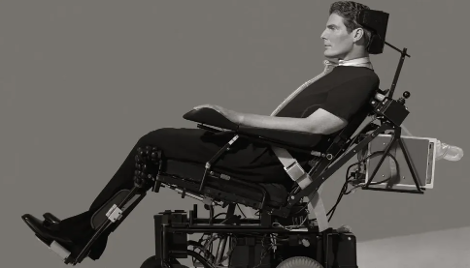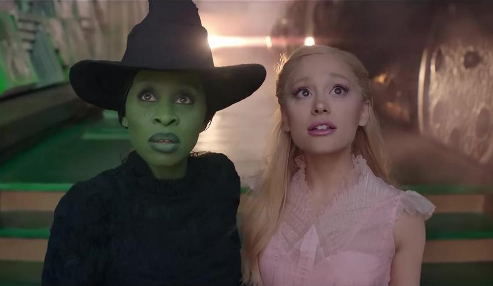SuperMan The Christopher Reeve Story

Cast: Christoper Reeve, Dana Reeve, Alexandra, Matthew and Will Reeve, Gae Exton
Directors: Ian Bonhôte and Peter Ettedgui
106 mins
‘Super/Man: The Christopher Reeve Story’ is a heartfelt documentary that dives deep into the life of the beloved actor who portrayed Superman on-screen and embodied resilience off-screen. Directors Ian Bonhôte and Peter Ettedgui craft a moving narrative that interweaves Reeve’s rise to stardom with his devastating horseback riding accident in 1995, which left him paralysed. The film balances his extraordinary public life and the intimate, personal moments shared by his children, wife Dana Reeve, and close friends. The documentary’s emotional depth is driven by interviews with Reeve’s family, including his children, Alexandra, Matthew, and Will Reeve, who reflect on the day of the accident and the profound changes it brought to their lives. Gae Exton, Reeve’s former partner and mother of two of his children, also provides rare insights into their relationship. However, Dana Reeve, his wife and steadfast caregiver, emerges as a quiet hero. Her unwavering support and compassion offer a touching reminder of the true power of love and resilience. The inclusion of home videos adds an intimate layer, showcasing the strength of their family bond even through adversity. While Reeve’s accident was a defining moment, the film doesn’t dwell solely on the tragedy. Instead, it celebrates his journey from being a Hollywood superstar to becoming a fierce advocate for spinal cord injury research and disability rights.
The use of Reeve’s own voice, narrating from his audiobook Still Me, adds a deeply personal touch, reminding viewers of his indomitable spirit. Visually, the film blends archival footage, rare behind-the-scenes clips of Reeve’s Superman, and innovative CGI to symbolise his paralysis through the metaphor of Kryptonite—a clever nod to his most famous role. The animated sequences depicting Reeve as a superhero confronting his own vulnerabilities are a creative highlight. The documentary also features candid interviews with Reeve’s close friends, including Glenn Close, Susan Sarandon, and Jeff Daniels. Their stories—especially those about his friendships with fellow Juilliard classmates like Robin Williams—reveal a multi-faceted Reeve, one who was both humble and deeply ambitious. Despite the sombre tone, Super/Man is ultimately an uplifting film. It reinforces the idea that heroism isn’t about superhuman powers but about perseverance, empathy, and overcoming life’s greatest challenges. Christopher and Dana Reeve embodied these values, and their legacy continues through their children and the Christopher and Dana Reeve Foundation. While the documentary may leave some viewers wanting to know more about Reeve’s pre-accident career or more details about his family relationships, it succeeds in portraying the essence of his character. This is a hugely touching and poignant tribute to a man who, despite unimaginable hardship, found the strength to inspire others.
WICKED

Cast: Cynthia Erivo, Ariana Grande, Michelle Yeoh, Jeff Goldblum
Director: Jon M. Chu
169 mins
Wicked the film is certainly a massive spectacle - it chops the long-running hit Broadway musical in two, with this film’s finale coming at the intermission break of the play. Act Two on-stage is quite a bit shorter than Act One, so one suspects that Wicked: Part Two will require new songs and plot threads to match the scale of the first half, as this Wicked is huge in every possible way. Fans of the show will likely adore it, but others, like myself, will find it hugely irritating - for reasons I’ll explain in due course. It opens with all of Oz celebrating the liquidation of Elphaba, the Wicked Witch of the West, who will eventually be played by Cynthia Erivo. That’s where the original Wizard of Oz left matters, but soon, Ariana Grande’s Glinda the Good, Elphaba’s presumed mortal enemy, floats down in a pink bubble to recount the story of how she and the Witch knew each other back when they were young students at Shiz University. Glinda is reluctant to speak at first. The walls of Oz’s villages are festooned with anti-Witch propaganda. (“She’s watching you,” blares one poster featuring a sinister picture of Elphaba.) And while Glinda’s tale is meant to answer the question, “Why does wickedness happen?,” what it ultimately reveals is that Elphaba wasn’t wicked at all — that she was just a girl who was rejected by those around her because of her green skin, and that there was more to her war against the powers that be in Oz than was allowed to meet the eye. No explanation of this is offered – did her mum have an illicit one night stand with Shrek? We should be told!
On a more serious note, Gregory Maguire’s 1995 novel, on which the show is loosely based, was written not long after the first Gulf War, and the author has said he was partly inspired by Western press reports repeatedly comparing Saddam Hussein to Adolf Hitler as a justification for invading Iraq. At the same time, the book goes to great lengths to show Oz’s gradual decline into fascism at the hands of our old friend the Wizard - performed by Jeff Goldblum, playing, as ever, Jeff Goldblum. The stage version, which premiered in 2003, in turn seemed to reflect the racism in the air following the aftermath of 9/11 and the ramp-up to the Iraq War. The tension between dark metaphor and the sickly sweet fantasyland of Oz has always been there. The world over the rainbow is just too surreal and strange to ever be taken at face value — it’s got to mean something. Perhaps that’s why director Jon M. Chu hasn’t tried to give his filmed Oz any genuine reality or weight. Even as his camera swoops through the skies, skims across rivers, or charges through villages, it all feels like pleasant, inconsequential background noise. For all its ambition and cinematic pyrotechnics, much of the stage version consists of speeches, tours and expositions — people speaking and singing to and with large crowds. That makes some sense in a stage production, but it can be intensely wearying when translated to film and it certainly is. Here, the population of Oz is basically stuffed with efffeminate gay men, characterless women and a blank mass of imbeciles, easily manipulated and fickle to a fault. They’re all chorus, all the time. Meanwhile, we keep waiting for the main characters to show some delicacy of emotion, something subtle and human, something to make us care for them – but it doesn’t happen. With her ludicrous eyelashes and her attempt at quicksilver physicality, Grande shows a singular lack of acting prowess, irritating rather than evil, as she fails miserably to convey Glinda’s popular-girl frivolity. She also tosses errant high notes into simple statements, which grates. Erivo has the harder task. Elphaba is the one who goes from rejection and sadness to love and stridency and, finally, rage. Hers is not a particularly nuanced performance and Elphaba’s melancholy should be as much part of Wicked’s spectacle as are the armies of flying monkeys or the swirling shots of the Emerald City.
I might have endured Wicked more easily if I was a fan of the songs, but that ubiquitous, tinny faux-pop Broadway beat of the lyrically substandard material turns me off instantly. Horrifying prospect: the studio has planned sing-along screenings across the world for sometime in the near future. The film’s performance of “What Is This Feeling?”, in which both leads express their initial loathing of each other, seems to drift for some bizarre reason from late-night split-screen bickering to a rollicking, school-wide extravaganza where everything becomes rhythm: click-clacking silverware, twiddling fingers, stomping feet, rolling chairs, and screeching tables. This is clearly the work of a mad man.
Wicked’s images are big, but they’re also shallow; they don’t draw the viewer’s attention further into the image, nor do they inspire curiosity about this world. They might impress in scale but not in depth. Additionally, the film keeps hammering home themes it’s already established, much to its detriment. Elphaba’s feelings of inadequacy and undesirability become less convincing once we sense where everything is headed. That is Wicked’s greatest problem. Despite its status as a revisionist reinvention of a classic text, so much of it feels far too programmed and contrived – and with a running time of almost three hours, this Wicked is utterly exhausting.